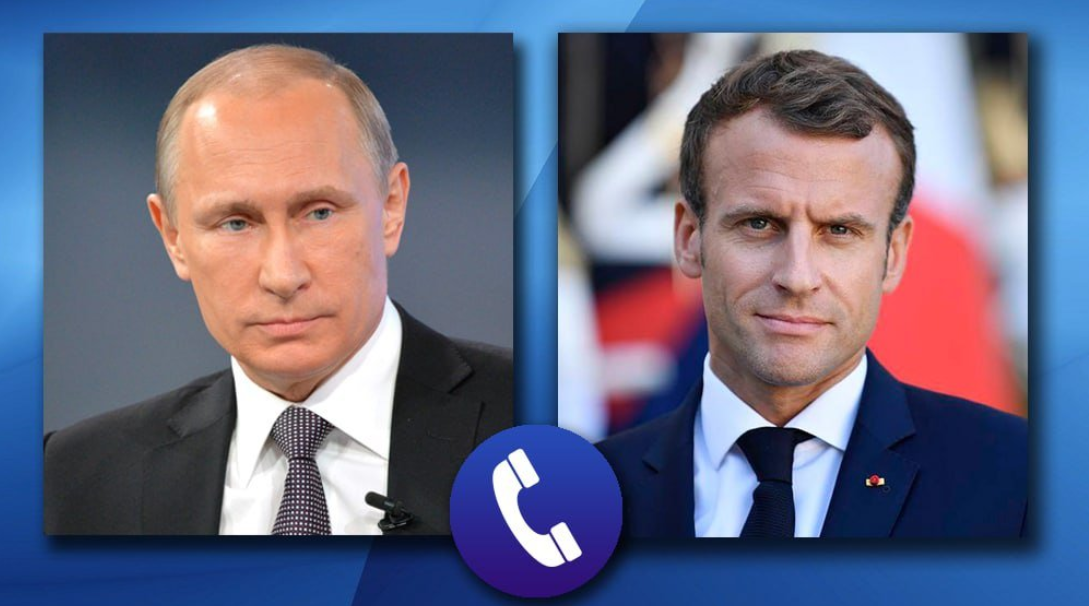Putin and French President Macron Hold Two-Hour Call on Iran Nuclear Crisis and Ukraine War:Russian President Vladimir Putin and French President Emmanuel Macron held a two-hour phone call on July 1, 2025, discussing escalating tensions in the Middle East, the Iran nuclear issue, and the Ukraine conflict. The two leaders emphasized diplomatic solutions and coordination on Iran while expressing diverging views on the war in Ukraine. Macron reaffirmed support for Ukraine’s sovereignty, while Putin called for recognition of new territorial realities. Both agreed to continue dialogue.
Putin and French President Macron Hold Two-Hour Call on Iran Nuclear Crisis and Ukraine War
In a crucial diplomatic exchange lasting over two hours on July 1, 2025, Russian President Vladimir Putin and French President Emmanuel Macron held an in-depth telephone conversation to discuss mounting tensions in the Middle East and the ongoing conflict in Ukraine. The call marks a significant moment of engagement between two key permanent members of the United Nations Security Council as global geopolitical crises intensify.
The two leaders primarily addressed the alarming escalation in the Middle East, particularly in light of the recent armed conflict between Iran and Israel and the United States’ military strikes on Iran’s nuclear facilities. Putin and Macron underscored their joint responsibility—as permanent Security Council members—to uphold global peace and stability and to preserve the international nuclear non-proliferation regime.
According to the Kremlin, both leaders highlighted the importance of respecting Tehran’s legitimate right to develop peaceful nuclear technology within the framework of the Treaty on the Non-Proliferation of Nuclear Weapons (NPT). They agreed on the need for Iran to continue fulfilling its NPT obligations and to maintain cooperation with the International Atomic Energy Agency (IAEA).
The French side echoed this sentiment, with President Macron emphasizing the urgency for Iran to comply fully with its NPT commitments. He also stressed that IAEA inspectors must be granted immediate access to resume their verification work. Macron reaffirmed his commitment to a diplomatic resolution—not only to Iran’s nuclear program but also to broader concerns, including Tehran’s missile development and regional behavior.
The two presidents agreed to maintain contact and coordinate efforts on the Iranian issue, signaling a desire to present a united front in managing the crisis diplomatically.
On the issue of Ukraine, however, clear differences emerged between Moscow and Paris.
President Putin reiterated the long-standing Russian position that the war in Ukraine was the result of Western actions that ignored Russia’s security concerns and supported an “anti-Russia platform” in Ukraine. He alleged that the rights of Russian-speaking Ukrainians were being violated and criticized Western military support to Kyiv, which he claimed is only prolonging the conflict.
Putin emphasized that any potential peace agreement must be comprehensive and long-term. He stressed the need for such an agreement to address the root causes of the conflict and to reflect “new territorial realities,” a reference to Russia’s occupation of several Ukrainian regions.
In contrast, President Macron reiterated France’s unwavering support for Ukraine’s sovereignty and territorial integrity. He called for an immediate ceasefire and the start of negotiations between Russia and Ukraine to secure a lasting resolution to the conflict. Macron’s approach remains firmly rooted in international law and the principle of respect for national borders.
Despite their differing perspectives, the two leaders agreed to keep open lines of communication and continue discussions on both Iran and Ukraine. Their extended call indicates a mutual recognition of the gravity of current geopolitical tensions and the need for high-level diplomatic engagement, even amidst diverging national positions.
Disclaimer:
This article is based on official statements from the Kremlin and the Élysée Palace. The content reflects the views expressed by the respective governments and is intended for informational purposes only. Readers are advised to consult multiple sources for a comprehensive understanding of ongoing geopolitical developments.

